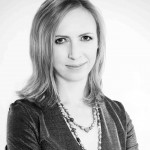Power and potential of social media in South Africa
Sarah Britten is a South African communication strategist, blogger, journalist, author and a contributor to Memeburn, a website devoted to digital trends. She is particularly interested in new media and how technology and media can work together for development. DW-Akademie’s Franziska Harich met Sarah at the recent Forum Medien und Entwicklung Symposium 2011 (FoME) in Bonn and asked her about social media in South Africa and the proposal of the African National Congress (ANC) to create a government appointed media appeals tribunal – a move that has been widely criticised by South African media.
Sarah, what role does new media play in the resistance against media restrictions such as the proposed media tribunal in South Africa?
There is a lot of campaigning in new media and a lot of consciousness raising. It is a way for people to publicly declare their allegiance to a cause. New media is used to create communities of interest and also just gather people together who would otherwise not be connected, who would not add up for anything. It is an ongoing thing but it tends to rise and fall in response to the level of noise from the government on the issue. It is difficult to sustain opposition to a cause constantly as there are so many things to be angry about and to campaign against. So campaigning or consciousness raising tends to be cyclical and it responds to how much coverage there is in the news.
Do you think that new media will contribute to a more stable democracy in your country?
I believe social media and new media have a very powerful potential role to play in deepening democracy because it’s a way for people to share information and to get around the usual channels. New media is an important addition for people who want to get their message out there. It is not filtered and therefore provides an addition to the traditional media. So you can compare the two, it makes it easier for you to make an opinion and to share opinion with other people. Plus, it makes it much harder to hide what’s going on because there is always somebody on the ground who sees what is really happening. So new media means more visibility and it makes it much harder to disconnect people from each other and that makes it harder for a single entity to control the message.
There are still deep social divisions in South Africa’s society. Is there also a divide in the use of new media amongst different social classes?
I think the digital divide is less marked than it used to be partly because the prices for cell phones are coming down and it’s easier to access things like social media without having a smart phone. Social media used to be perceived as being elitist but we are seeing it filtering down the income scale. Now also people who are less affluent have access to social media. Facebook is incredibly popular in South Africa and we have channels and platforms like MXit where people can connect in a sort of more basic format. We are seeing the digital gap closing. Smartphones, Blackberries, etc are expensive and we will always have a price barrier but people are much more connected than they used to be and there is a lot more internet access, which is great.
Does the new media, especially social media, hold opportunities to further unify society?
I am a firm believer in the potential of social media as a nation building tool. You can see other South Africans talking about things you are interested in, like a rugby match and social media has this reinforcing power – not only you are watching TV but you can see everybody else tweeting about it at the same time, so it adds another layer of experience to it. And there is this sense that ‘oh, other people who happen to be different from me also care about this’ and that adds a layer of insight. In your everyday life you do not necessarily get exposed to other opinions as you are talking to the same kind of people all the time. But social media theoretically gives you the opportunity to be exposed to a much more diverse range of opinion if you are willing to open yourself up to it.
What is your vision of a New Media Age in South Africa?
That would be broad-based media access with lots of mature, thoughtful conversation going on. Perhaps I am being a bit idealistic about that. People don’t necessarily talk about important issues. But ideally the sense that we are coming together, that there is neutral space between us and we are willing to listen to each other in that space and not always inhabit a rigid stereotype view but to be flexible. I think if you live in a very diverse society you have to let go of this idea that you are always going to hold true to certain principles, to certain ideas. You have to kind of go with the flow a little bit. I am hoping that social media will help people to do that by showing that people with different views of your own actually might be nice people and might be worth getting to know. So it is also about bringing that additional human element to our interactions. Those little points of connections can have real power and this is why social media is such a useful thing in a country with diversity issues like mine.





Feedback